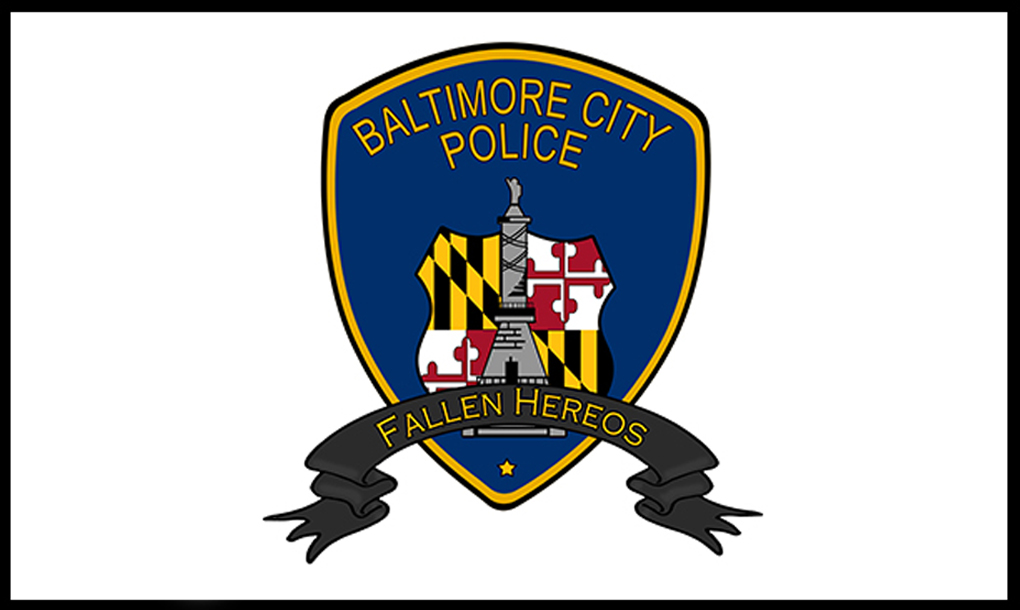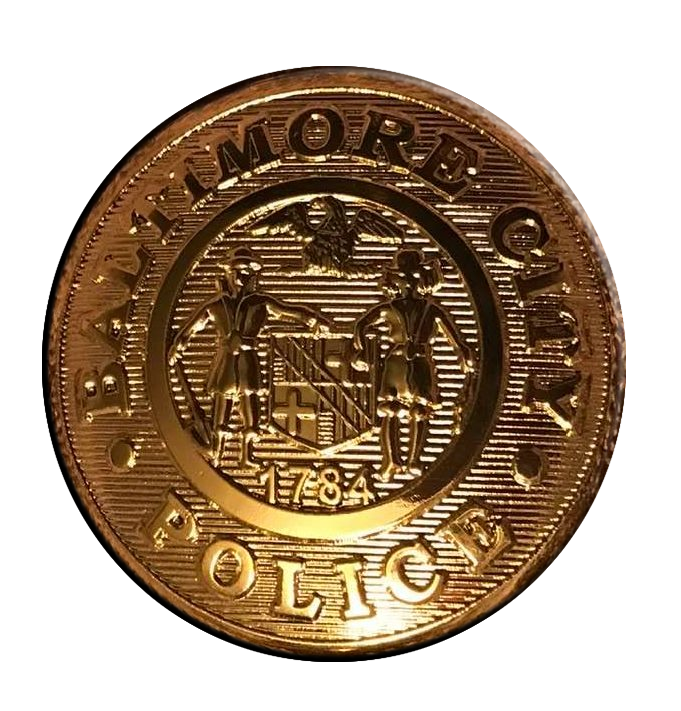On the night of August 15, 1974, in the 1600 block of North Bradford Street just before 9:30 p.m., Officer Milton Spell parked his car to begin foot patrol.
Officer Spell’s attention was drawn to a vehicle that was weaving side to side, traveling in the same block. Feeling that the driver may be intoxicated, he notified the dispatcher that he was attempting to stop the vehicle to investigate the driver. Following normal procedures, he requested a backup unit and continued to approach the vehicle.
Moments before the backup unit arrived, while Officer Spell was speaking to the driver, shots rang out from inside the suspect’s vehicle, striking Officer Spell. Officer Spell fell to the street with chest and abdomen wounds. The suspect and a companion fled the scene.
Officer Louis W. Michelberger was a little more than a block away when he heard the shots fired. He arrived to find more than 200 people standing near the fallen officer. Officer Michelberger attempted to save Officer Spell’s life using CPR. Officer Spell was transported to Johns Hopkins Hospital where he died, undergoing emergency treatment.
Officer Spell was a member of the Baltimore Police Department since 1967. He was 27 years old at the time of his death.

Slaying Suspect Arrested
Aug 17, 1974
The Sun (1837-1987); pg. B1
Slaying Suspect Arrested
Man – 32 – Held In Killing City Policeman
Police arrested a 32-year-old West Baltimore man yesterday for the slaying of the police officer who was shot while on duty Thursday night. Avon Mason Simmons, of the 1700 block of Mosher Street, was charged with homicide in the arrest warrant and taken into custody by two plainclothes officers without incident at 2:24 PM yesterday at Calhoun and Lafayette streets.
Also charged last night was Josepha Marie Herring, 26, of the 2100 block of Park Avenue, who police allege jumped into the assailant’s car after the shooting. She was charged with being an accessory after the fact.
The slain officer, Milton Spell, of the Eastern District, had been on routine patrol at 9:30 PM in his police cruiser when he pulled up behind a parked car he believed had been operated by a drunk driver in the 1600 block of N. Bradford Street. Police said Officer Spell asked the driver for his license and registration and was shot once in the chest and once in the abdomen by the occupant of the car. The driver then drove away. Officer Spell died minutes later on the emergency room operating table at Johns Hopkins Hospital. Police said the officer’s gun was still in its holster when a backup policeman rushed to his aid.
The car, which had been stolen a short time before the shooting, according to police, was recovered late Thursday night. Police did not disclose a motive for the slaying of the officer. There was another man with Mr. Simmons at the time of his arrest, according to police. He was being questioned last night by homicide detectives but had not been charged with a crime.
“I didn’t think too much of him wanting to be a policeman,” said Richard Spell, the dead officer’s father. “I knew somebody had to do it, and yes, I thought that someday something like this would happen,” added Mr. Spell, a 54-year-old assembler at General Motors. The officer lived with his father and three-year-old son, Milton S. Spell, in the 1800 block of W. Lanvale Street.
3 Tours in Vietnam
According to his mother, Claudia Spell, 44, of the 800 block of George Street, Officer Spell enlisted in the Army at 17 and served three tours in Vietnam in a special forces engineering detachment.
Family members said he was studying the violin and eventually wanted to pursue a career in music. “No mother really has a craving for her son to join the police force, but he wanted to do it and there was no way I could change his mind,” Mrs. Spell said yesterday. “I was always afraid that something might happen. But he’d say, ‘Mom, stop worrying about me, I’ll be all right.’” She added that he used to play his violin for her and in church.
Neighbors said he was helpful as a child and would run errands for persons unable to do so themselves. His estranged wife, Carol, 26, lived with their two daughters, Tonya, three, and Michelle, six, in Platteville, Alabama. They were due to arrive in Baltimore last night. His mother said, “He said to me last week, ‘Whenever I achieve what I want to, I’m going to have you right here with me.'"
Pomerleau Asks Study of Bullet Proof Vests
Donald D. Pomerleau, the police Commissioner, yesterday ordered a study of the feasibility of providing officers with lightweight, synthetic, bulletproof vests.
The action came in the wake of the shooting death of Officer Milton Spell, who was felled by a bullet in the heart. The other two city officers slain this year – Sgt. Frank W. Grunder, Jr. and Officer Frank Whitby – also died from chest wounds.
A police spokesman said the Commissioner had been looking at the possibility of bulletproof vests for some time, and yesterday ordered the planning and research division to make a “comprehensive study” of the cost and feasibility of such a program.

City to Get Bullet-Proof Police Vests
Jun 5, 1975
RICHARD BEN CRAMER
The Sun (1837-1987); pg. C1
The city government authorized a $288,379 expenditure yesterday for more than 3,000 bulletproof vests for Baltimore’s police officers. The unanimous vote by the Board of Estimates, approving a $250,000 federal grant and adding more than $20,000 in city funds, marked the final step in the campaign begun by Donald D. Pomerleau, the police commissioner, after four policemen were fatally shot last year. All of Baltimore’s officers will be issued the nylon-substance flexible vests and covering garments. Experts employed by the International Association of Chiefs of Police reportedly consider the type of armor sought for Baltimore’s police the best protection available.
The vests, about 1 ¼ inches thick and weighing about 1 ¼ pounds each, are designed to protect an officer’s heart, chest, stomach, and kidney areas. Tests showed that the 12 layers of nylon substance, called Kevlar, can stop a .38-caliber slug fired at point-blank range toward an officer’s body. The major innovation of the Kevlar vest, according to Police Department experts, is the diffusion of the shock caused by the impact of the bullet. Other types of body armor, they say, will stop the bullet but will not diminish the shock from its collision with a body. The Kevlar vest is designed to spread the shock laterally so that bullet impact is less likely to cause internal injuries.
C. Edward Hawkins, chief of the Protective Engineering Group at the Edgewood Arsenal, told reporters earlier this year that a full-grown man wielding a sharp knife could not cut through all 12 layers of Kevlar which make up the vest. Kevlar yarn is twice as strong as steel wire of the same weight. City officials said yesterday they expect the vests to be ready for police use later this year. Only one other city, San Francisco, has its Police Department fully outfitted with the bulletproof armor.
Mr. Pomerleau accelerated the department study of body armor last August, after Milton I. Spell became the third policeman to die of gunshot wounds in 1974. A fourth policeman, Martin J. Greiner, 25, died in December of two gunshot wounds in the abdomen.
In other Board of Estimates action yesterday, the ARA Food Services Corporation lost a million-dollar contract to provide summer lunches for impoverished Baltimore children. The board awarded the contract to Marlin’s, Inc., the food service which runs Martin’s West and other banquet halls. The Marlin’s firm, which submitted an original bid $80,000 higher than ARA’s for the 1.5 million box lunches this summer, successfully argued that the exceptions ARA made in its proposal violated the city’s specifications.
After more than an hour of convoluted argument at the close of yesterday’s session, the five members of the board voted unanimously to take the contract away from ARA despite its lower bid. The two problems with ARA’s bid cited were the lack of a minority contractor to participate in the venture and a clause which would have allowed ARA to pull out of the contract unilaterally with no recourse for the city. Both the ARA and Marlin’s bids were below the subsidy level offered by the federal government. Mayor Schaefer praised both contractors, claiming that both performed excellently on previous contracts. His difficulty in choosing between them exceeded his impatience at the international hearings on the subject. “This food program,” he remarked, “is becoming distasteful.”

Court upholds conviction in '74 police slaying
Aug 25, 1976
ROBERT P WADE
The Sun (1837-1987); pg. D3
Court upholds conviction in '74 police slaying
Annapolis - The conviction of a 31-year-old Baltimore man for the 1974 slaying of city police Officer Milton Spell was upheld yesterday by the state Court of Special Appeals. A three-judge panel also affirmed convictions against Hardy Herring for armed robbery and illegal use of a handgun.
The court’s decision, contained in a six-page opinion, leaves intact a life prison sentence plus 25 years for the armed robbery and gun charges imposed by Judge James A. Wise of the Caroline County Circuit Court. The case was transferred there from Baltimore City Criminal Court.
Herring is now an inmate of the Maryland. Penitentiary
Officer Spell was shot to death on August 15, 1974, during a routine check for “a possible DWI,” as he told police communications over his walkie-talkie just moments before being murdered. A “DWI” is a drunk driver.
The 28-year-old officer had been playing with a group of neighborhood children just before walking over to the car Herring was driving. The officer was shot twice and fell to the ground without pulling his revolver from his holster.
Herring was convicted of first-degree murder and of stealing the car, some cash, and a Masons ring. He agreed to talk only after being given assurances he would not be incarcerated at the City Jail, fearing reprisals for activities as a police informer. However, Howard Gersh, an assistant state’s attorney, told the trial court that his decision not to lock the man in the jail had nothing to do with Herring’s willingness to talk, but was based instead on a belief that Herring’s fears may have been well-founded.
The court rejected that line of reasoning, as well as an argument by Mr. Buchman that Herring’s act could not have been willful or premeditated because Herring was drunk.























